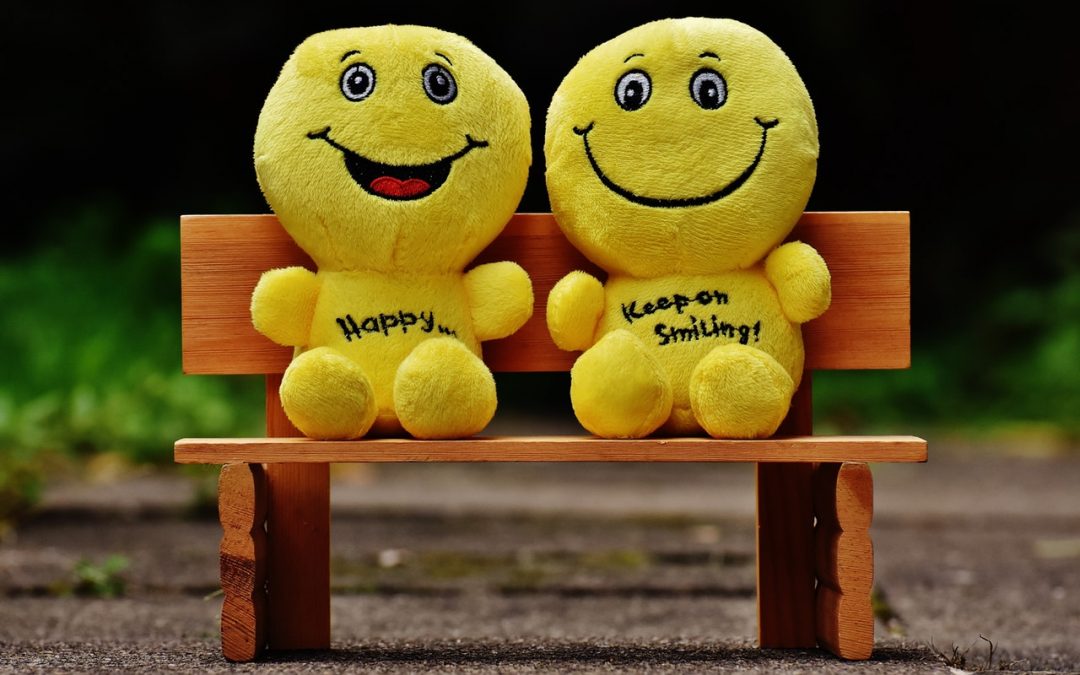To ask such a question implies that there is false happiness. And I would indeed argue that there is: an episodic, circumstantial happiness, based on external factors such as other people and things. Ask a hundred people around you how they would define happiness and you will likely get a hundred different versions.
No wonder. Most often, we link so-called happiness to a future external event: “We’ll be happy when…”––we get a new car, when we go on holidays, when the weekend arrives, when we meet that special man or woman…and on and on it goes. We do not realize––or don’t want to–– that our “happiness” is depending on things that, by nature, are shifting, changing and evanescent. The car will eventually lose its shine, the holidays are over before we know it, Monday is here in the blink of an eye and that special person…happens not to be so special after all.
So, what IS authentic happiness? As I expanded on in my new book 7 keys to Serenity, true happiness does not just happen. We create it, and we create it inside ourselves. True happiness is a state of mind––even more than that––a state of being. A feeling that is not linked to a circumstance or a person, an animal or a thing. How then do we create authentic happiness? It is a process that may take some time to unfold. It involves many different components––all of which are internal. It starts with becoming comfortable with change.
Most of us are afraid of change and yet––to use a rather clichéd expression–– it is the only constant. But it helps repeating it again and again because our subconscious mind is afraid of change. Change means uncertainty and uncertainty is perceived as a potential loss and therefore creates anxiety. (We’ll address that aspect in a later blog.) We change all the time by nature. We grow older––the laws of entropy and gravity at work–– but we also renew ourselves. Our cells die and grow new ones, we change in subtle ways every day. We need to become comfortable with change because change is our essence. Transformation is woven into the fabric of life.
Once we do that, we worry less about things. Not to worry is the second most important key to true happiness. Worry and anxiety are the main culprits of many of our ills, physical, mental and emotional. Why worry? We just do, don’t we? Some of us are worry mongers, we can’t help but worry just about anything. We perceive uncertainty as threatening; the negative takes precedence over the positive, we see the glass half-empty. We must come to understand that, by engaging into this mode of thinking, we sabotage our own vessel––the only one we have to navigate the river of life. True happiness rests on being well and healthy. If we keep worrying about things, we sap our essential energy (chi) and compromise our immune and hormonal systems. Most illnesses, diseases are of psychosomatic nature. We are not “at ease” in our being and as a consequence, we slip into disease.
So, how do we get rid of anxiety? First, we need to realize that most things we worry about never materialize––unless we keep focusing negatively on them, thus creating the very negative outcome that we fear. (This has to do with the laws of attraction and resonance, I expand on at length in my book.)Physically, we can alleviate anxiety by practising controlled, deep breathing. A couple of minutes is enough to relax our body. Mentally, we practise a very simple meditation, focusing on our breath, visualizing for example ocean waves that come in and out at the beach. This will relax our mind. Start with short sessions––a couple minutes at a time–– and then, lengthen them incrementally. It doesn’t sound like much but I guarantee it works.
You can practise this several times a day and it is truly amazing how this “meditation on the go” decreases the level of physical and mental tenseness. Over time you may find it easier to focus on your breath––and to stay with it. It will become a sound habit to integrate into your day-to-day living.
If you read these lines and implement this very simple technique, please feel free to send me your feedback.
In my next blog, I’ll share with you my reflections on another essential component of true happiness: self-love.
Stay tuned
Namaste
Serge

Recent Comments